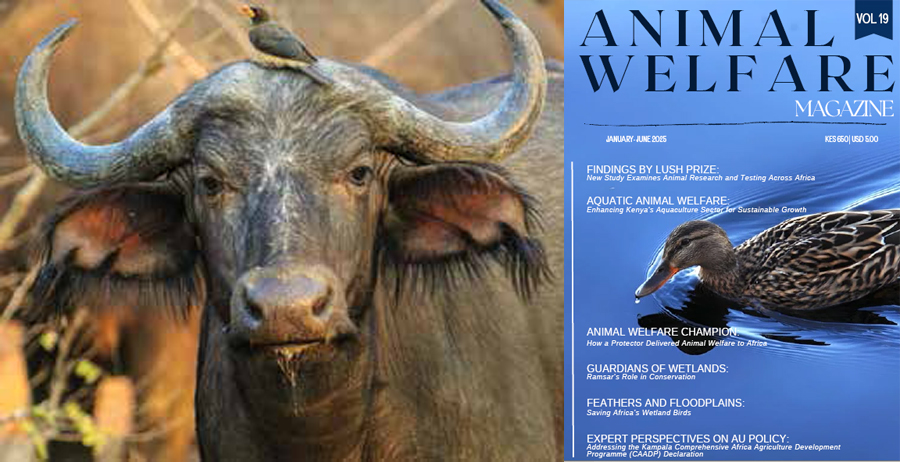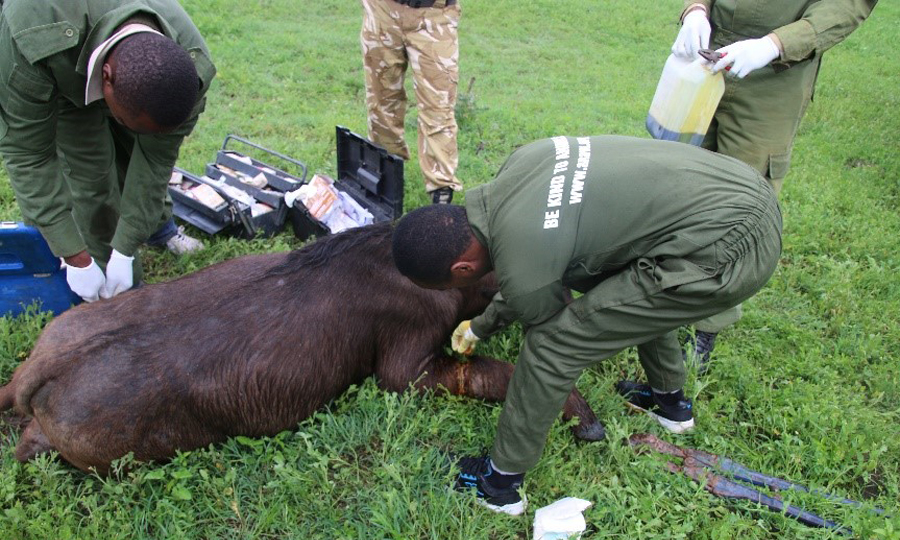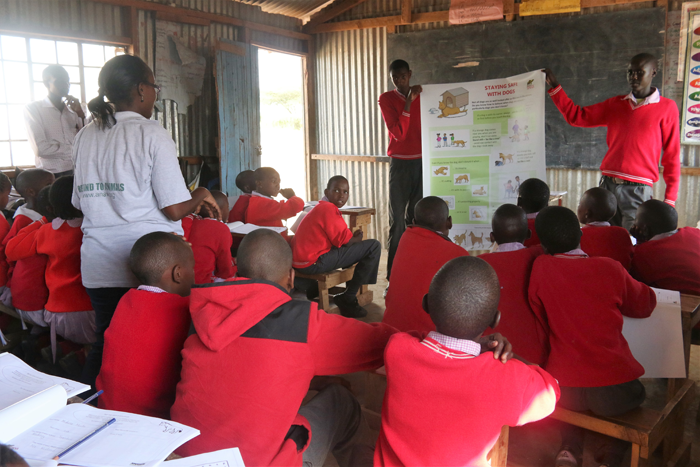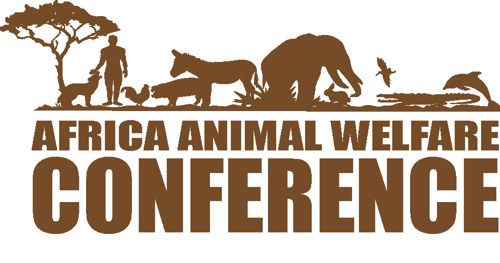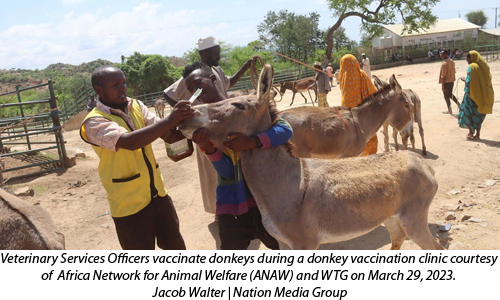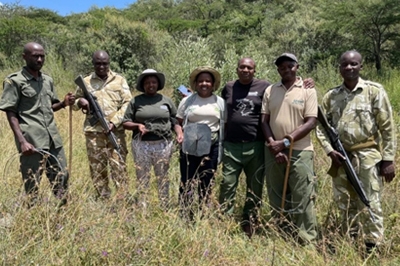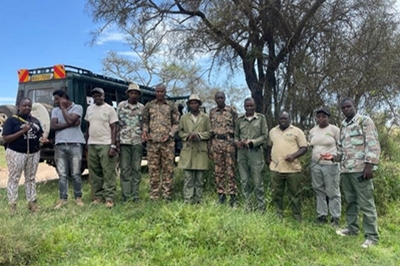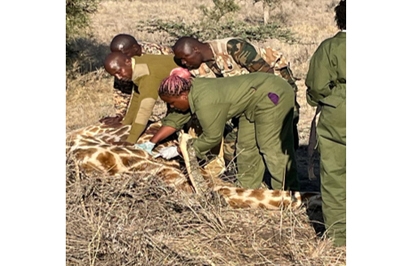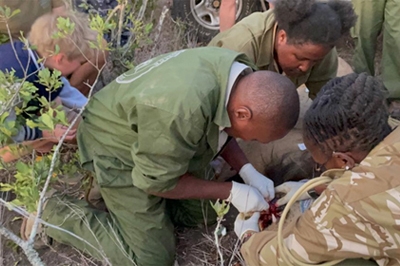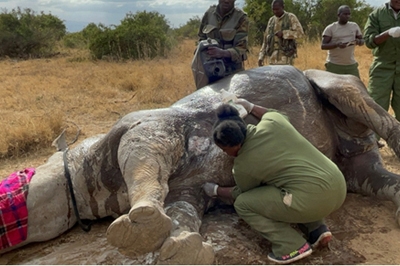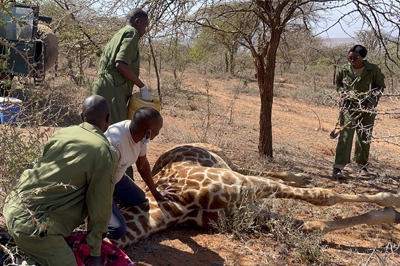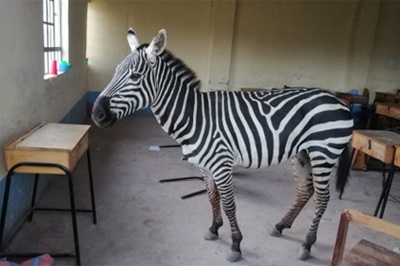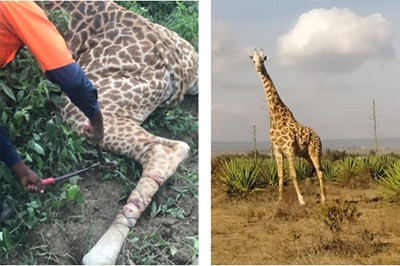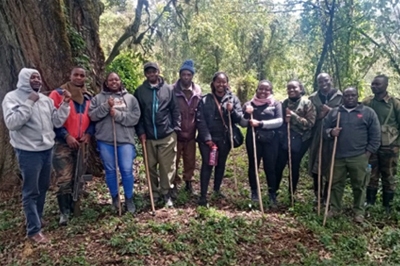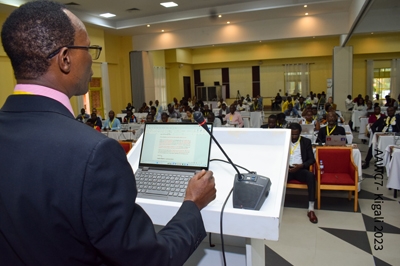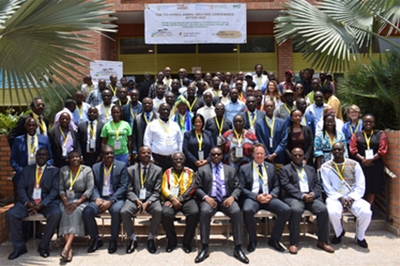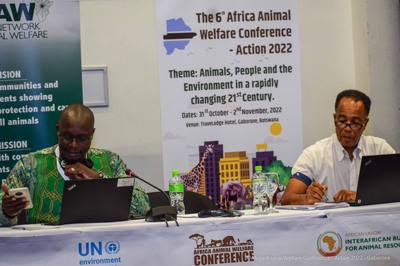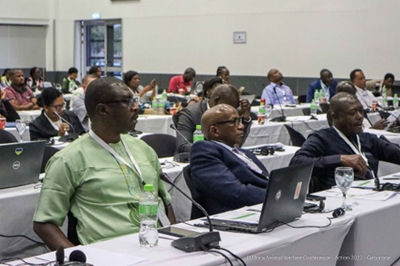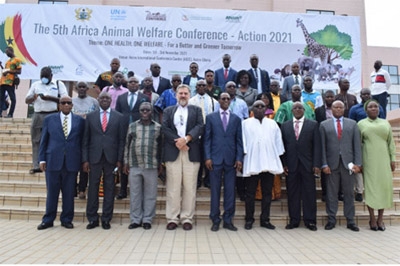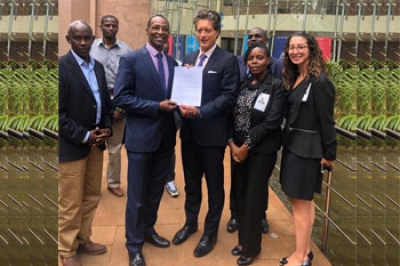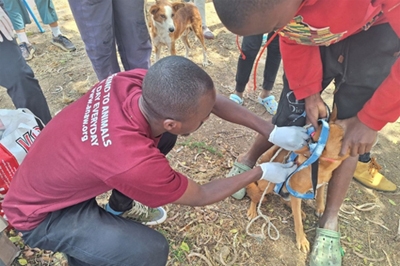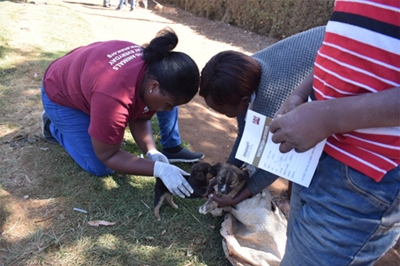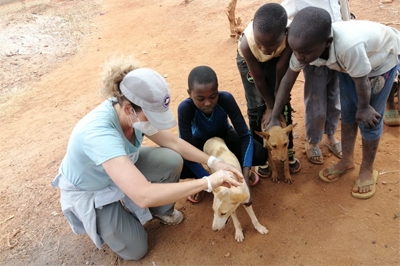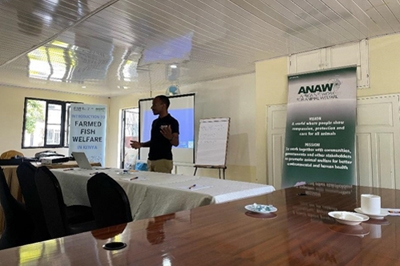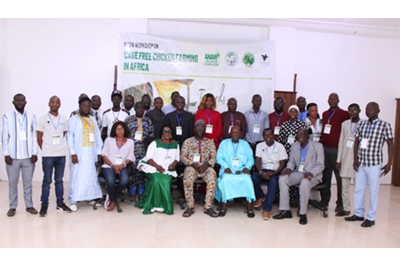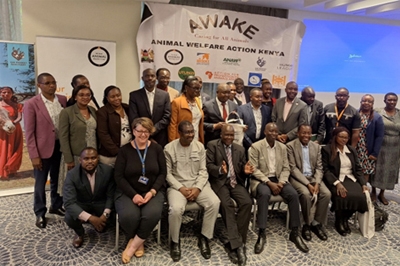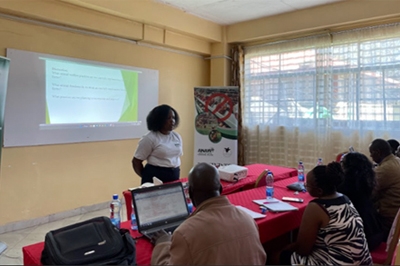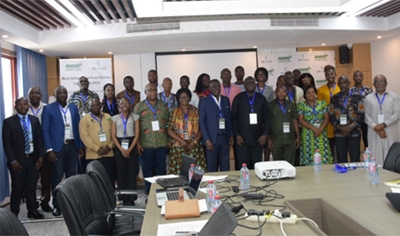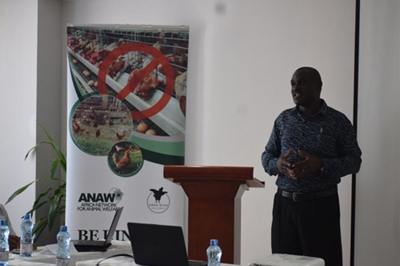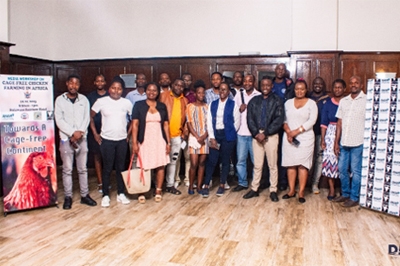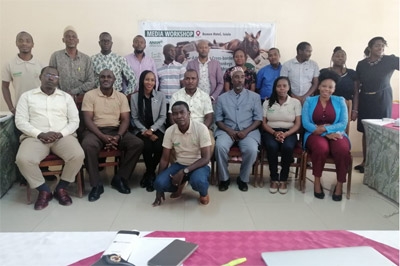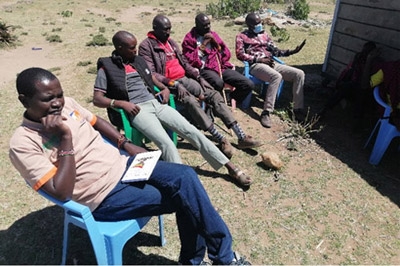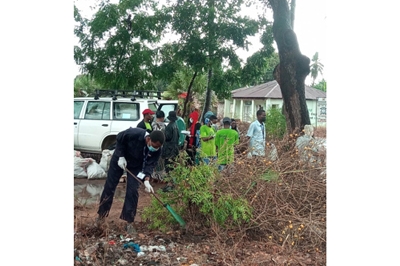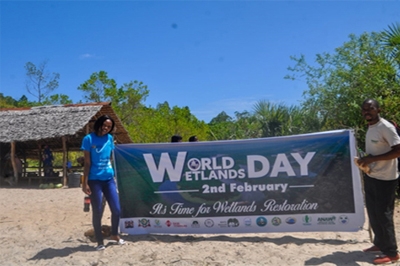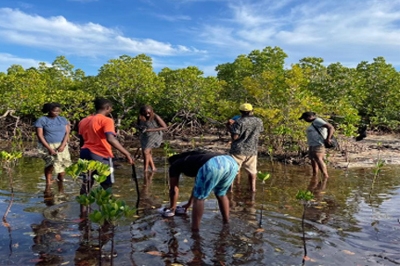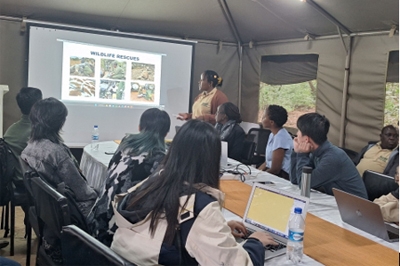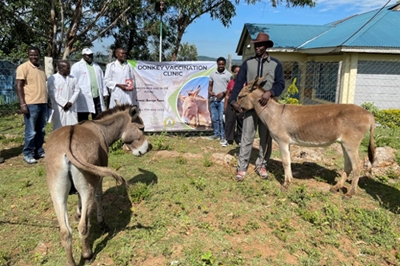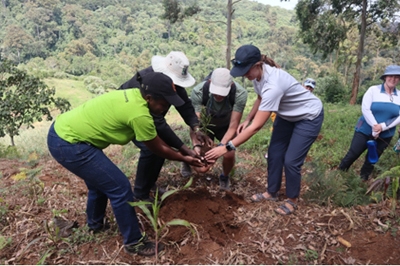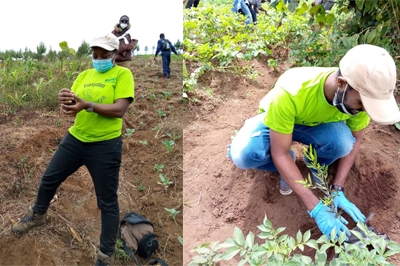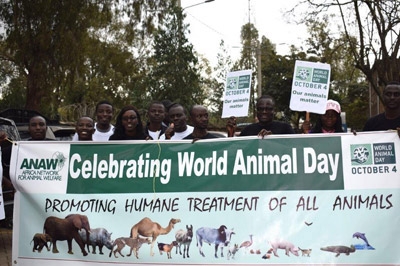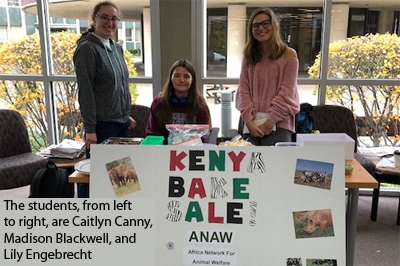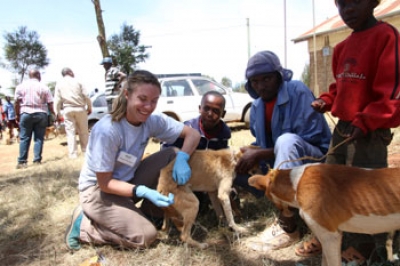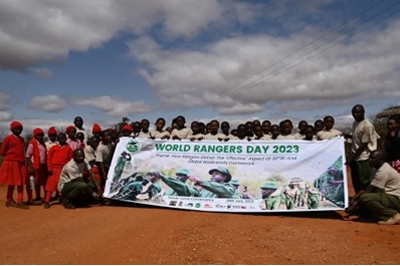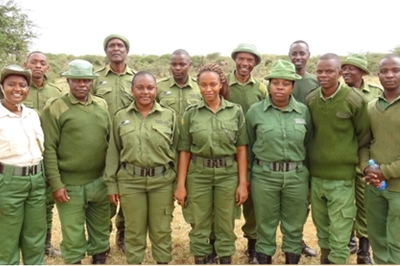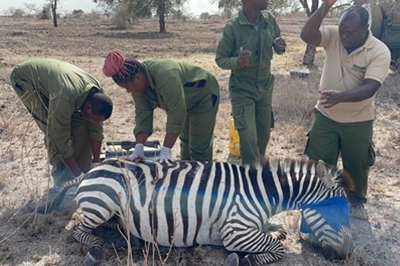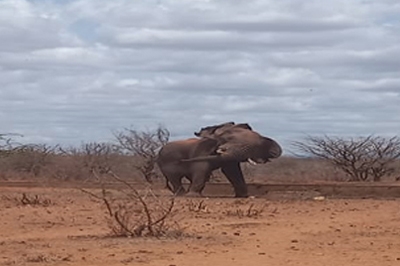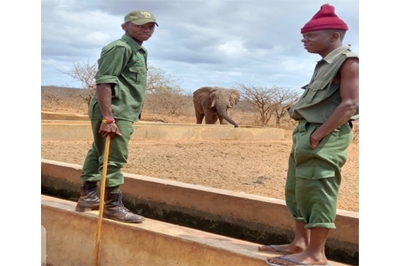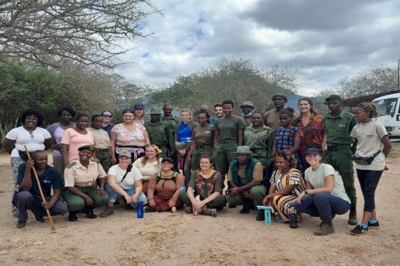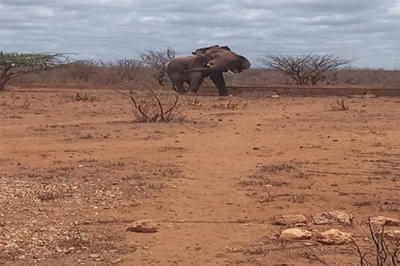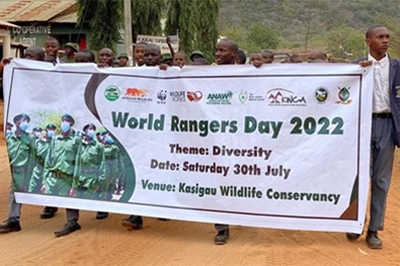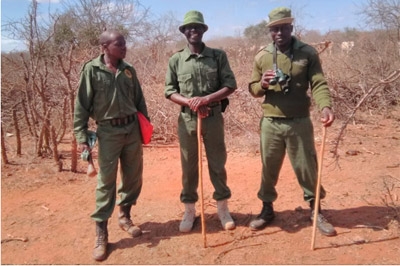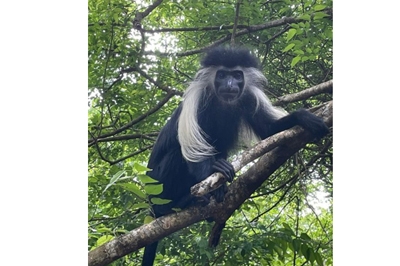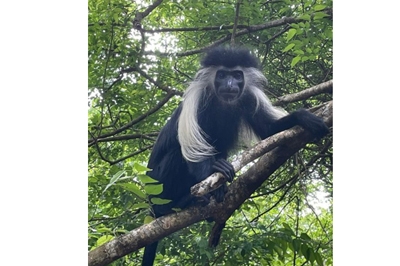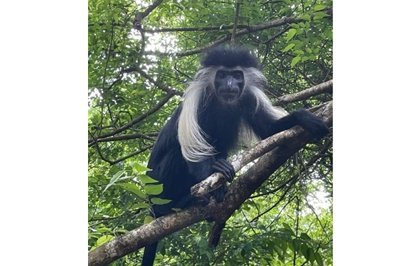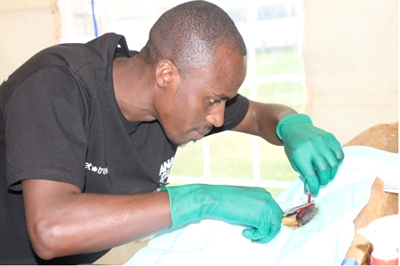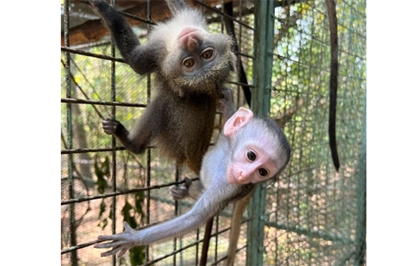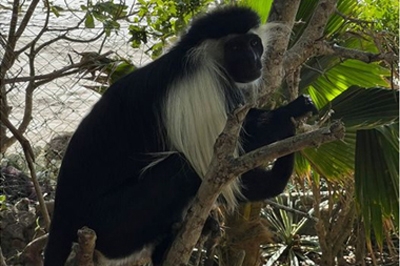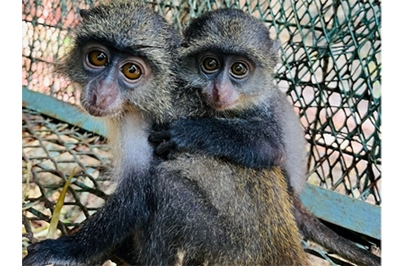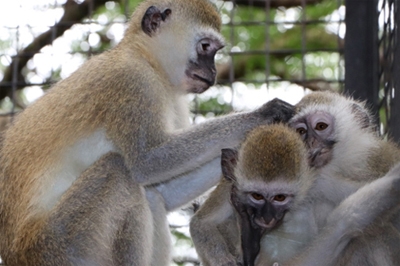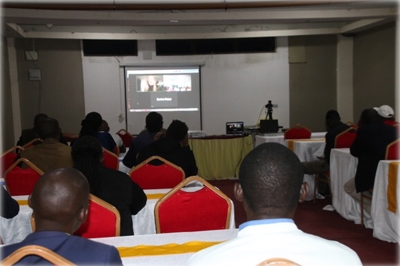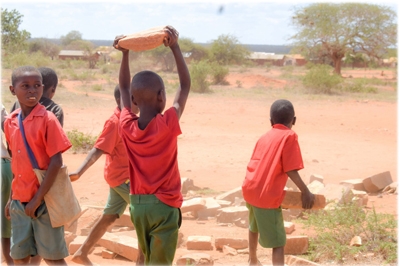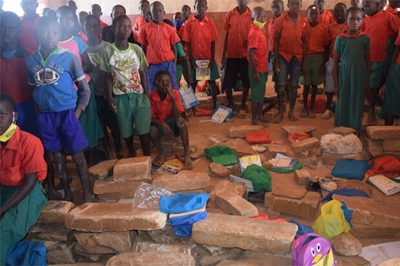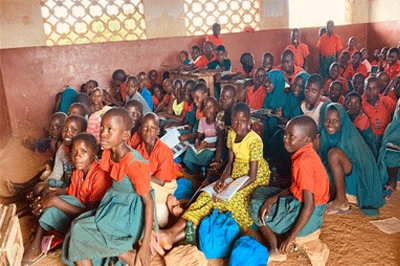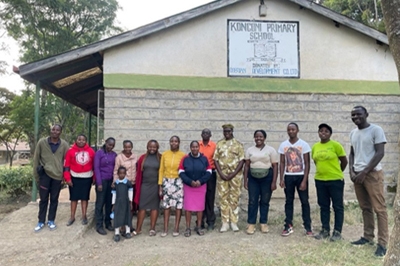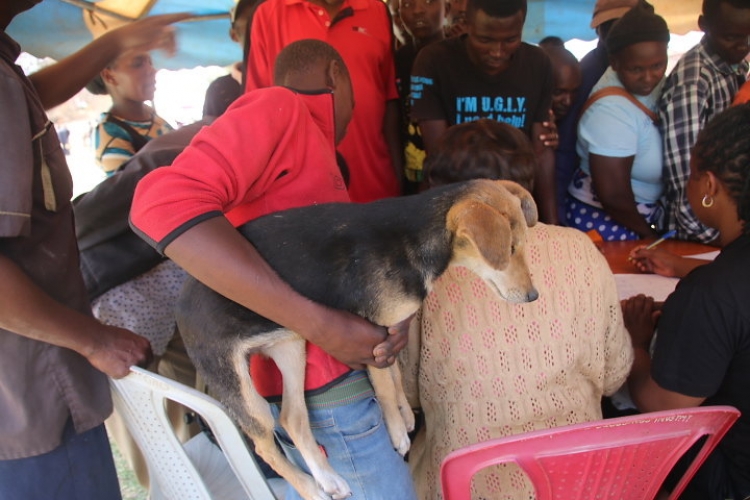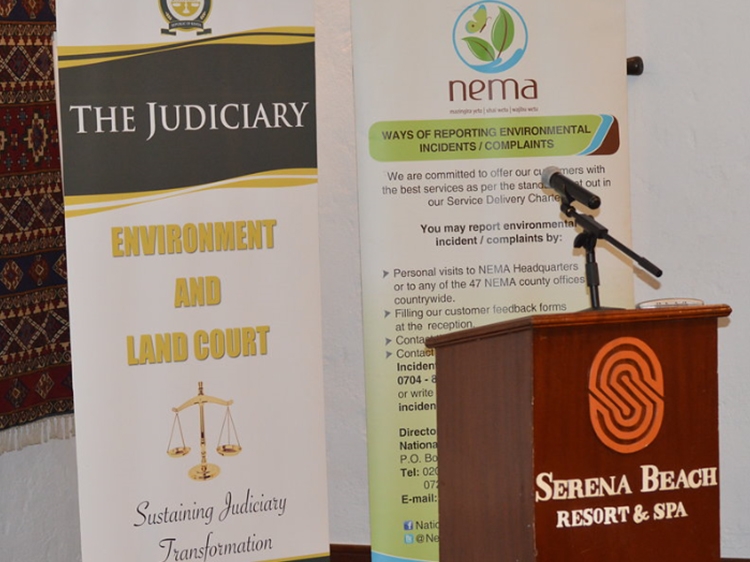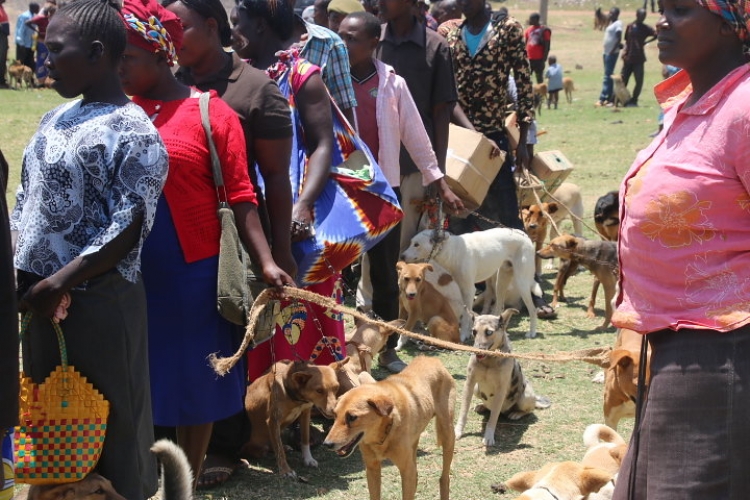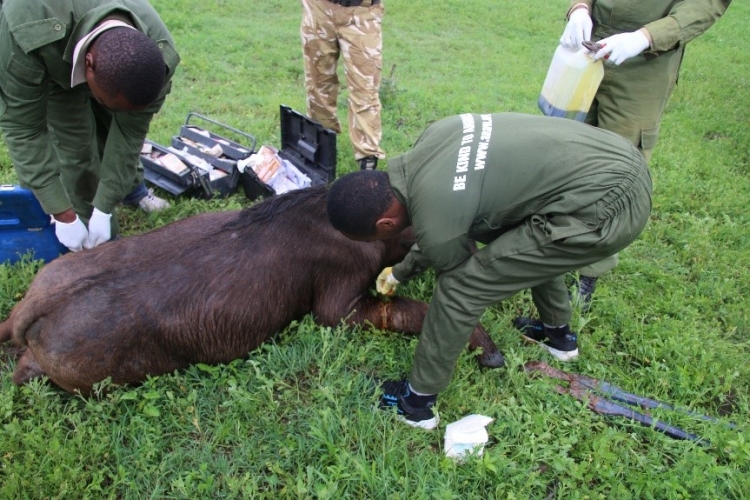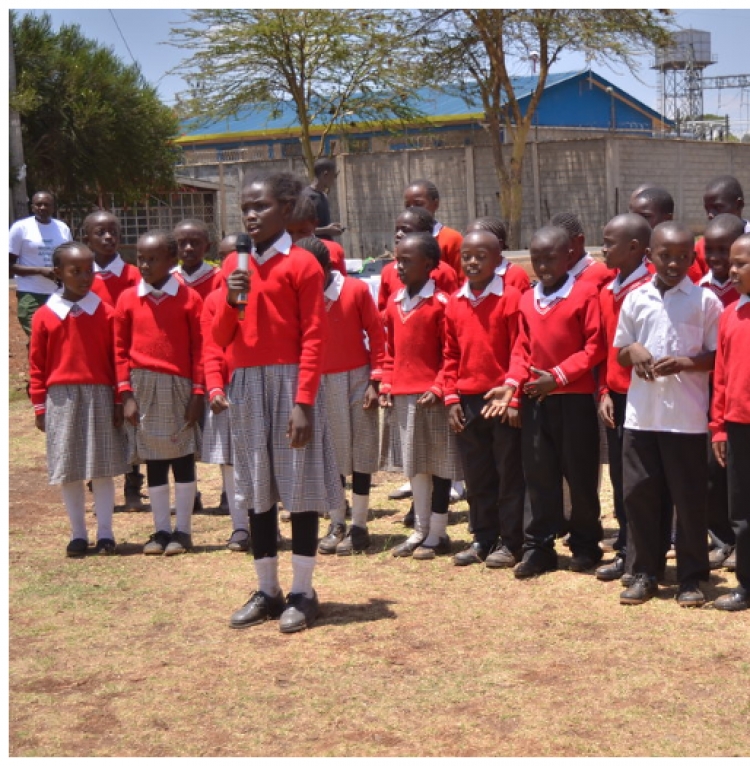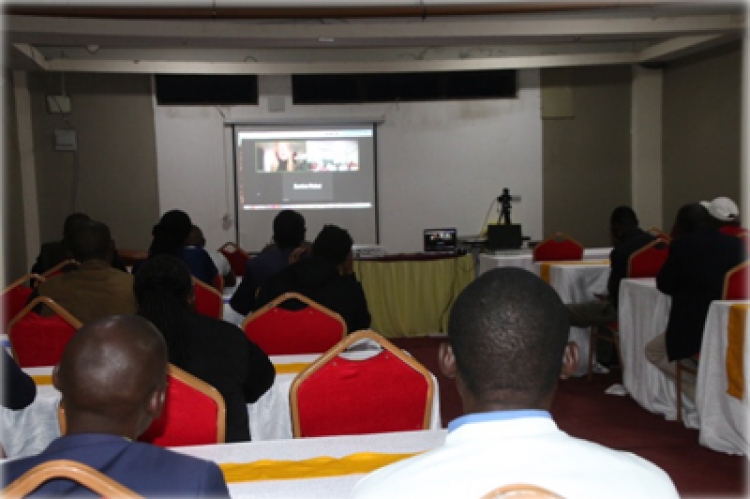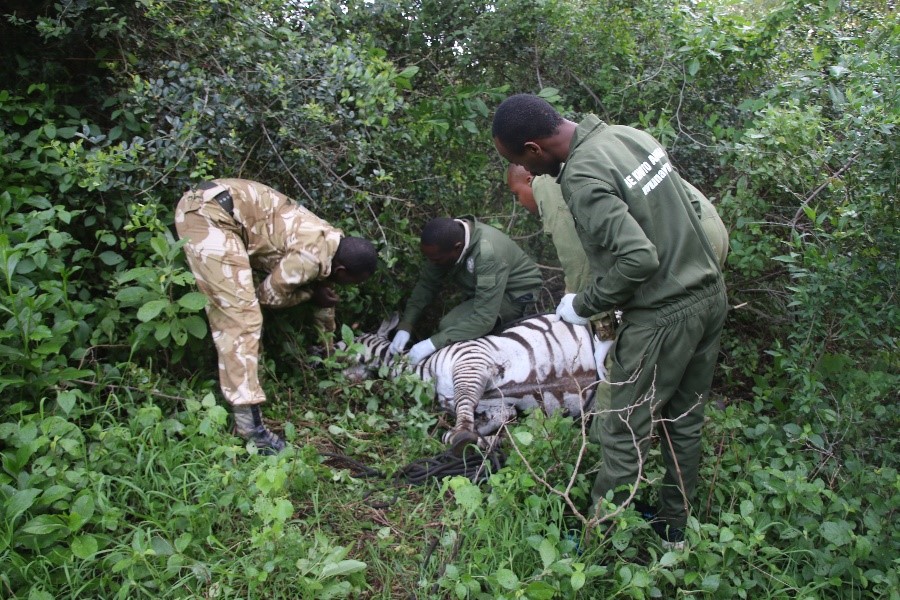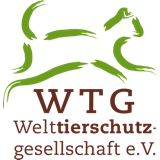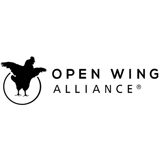
Capacity Building, Education and Awareness (CBEA) seeks to provide stakeholders with a platform to:
- Learn about animal welfare and exchange experiences
- Advocate for animal welfare issues
- Share information and lessons arising from various efforts towards key animal welfare outcomes
CBEA’S objectives is to increase knowledge and skills and improve attitudes as well as behavior about animal welfare. CBEA has a strong framework based on the ANAW Strategic Plan (2021-2025). It is delivered under five areas:
- Promoting Animal Welfare in Schools (PAWS)
- Education and Awareness
- Stakeholder Engagement
- Experiential Learning
- Direct public participation activities
i. Promoting Animal Welfare in Schools (PAWS)
The aim of the programme is to create a platform for school children across Africa to participate in impactful educational animal welfare activities. The platform is intended to make them more compassionate to animals as well as get involved in preventing cruelty and abuse directed at animals within their communities. The current platform used to achieve the PAWS objective is the Animal Welfare Clubs.

Objectives
- To facilitate the establishment of Animal Welfare Clubs in primary schools (Private and Public).
- To raise awareness by engaging club members in activities aimed at promoting animal welfare in schools and at home and encourage the development of empathy, compassion, responsibility and positive attitudes to animals.
Background
Animal Welfare Clubs was introduced in Kenya in 2012. The program piloted in 13 schools in four (4) counties namely:
- Nairobi
- Kiambu
- Machakos
- Kajiado
Since then, Animal Welfare Clubs have been operating as informal youth group platforms in primary schools whose membership comprises learners between ages of 6 and 14 years. The clubs operate under the close guidance of a teacher who is the patron, and ANAW’s Project Coordinator. The members participate in activities geared towards making them more aware of the importance of animals and how they can prevent cruelty and abuse directed at animals within their communities. The program has been consistent with a steady increase in the number of schools and learners.
Activities
a. Design Production and Distribution of Teaching and Learning Materials
ANAW develops a teacher’s manual and learners activity books that are used during the club lessons. The manuals are revised from time to time to make them relevant to the current animal welfare trends as well as school curriculum. The learners also participate in other hands-on activities outside the classroom in order to practice what they have learned.
b. School visits
Scheduled school visits are done to enhance monitoring and grow relation between the learners, patrons, and the school administration. The ANAW Program Coordinator interacts with the school headteachers and club patrons in the respective schools. The visits are carried out when school is in session, preferably during the club sessions. This helps in the assessment of the delivery of the program.
c. Teachers Training and Workshops
All new patrons are trained to acquaint them with the program. The teachers’ trainings are held to sensitize and educate teachers on lessons delivery and the running of the clubs. They are also introduced to the animal welfare materials. Workshops are used to share experiences. It is also used as an evaluation tool.
ii. Education and Awareness
ANAW uses both formal and non-formal, direct or indirect education and awareness creation as component of education and awareness. The organization works in collaboration with groups of people affiliated by geographic proximity, education, special interests or are similarly working to address issues affecting the wellbeing of animals and the people. Working with such groups has brought about environmental and behavioral changes that are critical in the lives of animals and the people. ANAW works with communities to build their capacity by gaining confidence, skills, knowledge, and experience where they can contribute to decision making processes at all levels.
iii. Stakeholder Engagement
ANAW works with governments and like-minded stakeholders to carry out interventions that contribute towards maintaining a balance between various human practice and animal survival. Stakeholders are given an opportunity to be involved in the meaningful ideas that address animal welfare issues.
ANAW partners with key organizations and institutions to develop elaborate trainings, conferences, workshops, and seminars to serve as platforms for equipping officers from various government authorities, institutions of higher learning and like-minded civil society organizations with adequate and up-to-date knowledge on animal welfare standards and policies. ANAW takes in mind the capacity and ability of different stakeholders.
iv. Experiential Learning
ANAW hosts international professionals and students experiential learning groups. The teams engage in direct hands-on experience and focused reflection in order to increase knowledge and skills. ANAW experiential programs provide motivation, training and career development opportunities for participants and enhance their occupational, employability and career skills through various hand on activities.
University of Denver Trips
Since 2008, ANAW has been partnering with University of Denver Graduate School of Social Work to host students from the Institute of Human Animal Co-existence. The Master of Social Work Students spend two weeks in Kenya learning about the social, political, economic, cultural and conservation issues in Kenya and East Africa. The trips give students an opportunity to interact with local communities and have hands on experience to support emerging skills as well as community development needs. Students are able to conceptualize ecological system services as necessary and integrate understanding for human health and connection on how social work and environmental science help reach critical global goals.
Animal Welfare Adventure Trip (Julie Kelly Trip)
 The Animal Welfare Adventure Trip brings together veterinarians, vet techs, vet nurses and animal enthusiasts travel to Kenya annually to participate in veterinary activities that make an impact in Kenyan communities. Led by Dr. Julie Kelly, the trip focuses on free mass vaccination and treatment of dogs and cats in different areas in Kenya. They also educate communities on humane and responsible pet ownership and pet grooming. Additional knowledge is shared on how to reduce dog bites incidences so as to contribute to the decreased incidences of animal cruelty and improve human and animal health.
The Animal Welfare Adventure Trip brings together veterinarians, vet techs, vet nurses and animal enthusiasts travel to Kenya annually to participate in veterinary activities that make an impact in Kenyan communities. Led by Dr. Julie Kelly, the trip focuses on free mass vaccination and treatment of dogs and cats in different areas in Kenya. They also educate communities on humane and responsible pet ownership and pet grooming. Additional knowledge is shared on how to reduce dog bites incidences so as to contribute to the decreased incidences of animal cruelty and improve human and animal health.
VetTreks trips (Lisa McCarthy)
The VetTreks experiential trips are led by Lisa McCarthy. The initiative helps to improve the welfare of dogs through provision of high volume free spay and neuter to dogs and cats. In addition, the team builds the capacity of the veterinarians by providing a learning experience to veterinary students, government extension officers and other stakeholders.
v. Direct Public Participation Activities
ANAW provides public participation opportunities where members of the public participate in decision making regarding animal welfare issues for future sustainable development. This ensures that a wide range of voices can be heard without one group dominating the process and its outcomes. The platforms will increase awareness raising and ensure action within different communities is facilitated with a wide range of voices are heard. In ANAW, public participation has been employed during the Wildlife and Conservation and Management Act 2013, Standard Gauge Railway construction and the Consumptive Utilization Act.

